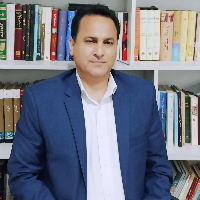A Study of the Structure, Subject Matter, and Methods of Critical Dialogues in Attar’s Tazkerat al-Owliya
Dialogue is one of the most important features of Attar’s Tazkerat al-Owliya (Biographies of the Saints). At the beginning of every zikr, a dialogue and a question and answer are seen and often the first event that has caused a drastic change in the thoughts and way of life of the person is demonstrated in the form of a conversational critique or admonition. Considering the importance of the dialogue in this work, the questions addressed in this study are as follows: what forms and kinds of dialogues and what subject matters are dealt with in Attar's Tazkerat al-Owliya? Who are on the two sides of the dialogues? What has been done against the opponents? The research was descriptive-analytical, meaning that the forms and structures of the dialogues, as well as the contents of the dialogues, were examined in one-hundred instances. This study showed that, in addition to Awlya's (the saints) criticism of each other, there has been one of the forms of the dialogue between them and people of other religions, women, children, men in power, and strangers, and self-criticism. The dialogues can be considered as conversations, debates, and dialectics. The criticism of positive statements has created a kind of deconstruction. The deconstruction and unexpectedness were the most important aspects of these dialogues, which can be examined according to the rule of ‘Talaghi Sael Beghair ma Yatlob’ (the seeker received something other than what he asked) and Oslob Alhakim; and the educational goals of the work have been consistent with these rhetorical methods. Mystics have often considered the inner layers of thoughts and behaviors, and this has been the reason for the shortness and needlessness of long discussions. In fact, in the dialogue, the one who sees the innermost layer of the behavior or thought is the winner. A careful look at the two sides of dialogues showed that Owliya has been criticized by children, women, and anonymous people. They criticized rulers and were tolerant of people of other religions in the debates.
- حق عضویت دریافتی صرف حمایت از نشریات عضو و نگهداری، تکمیل و توسعه مگیران میشود.
- پرداخت حق اشتراک و دانلود مقالات اجازه بازنشر آن در سایر رسانههای چاپی و دیجیتال را به کاربر نمیدهد.


